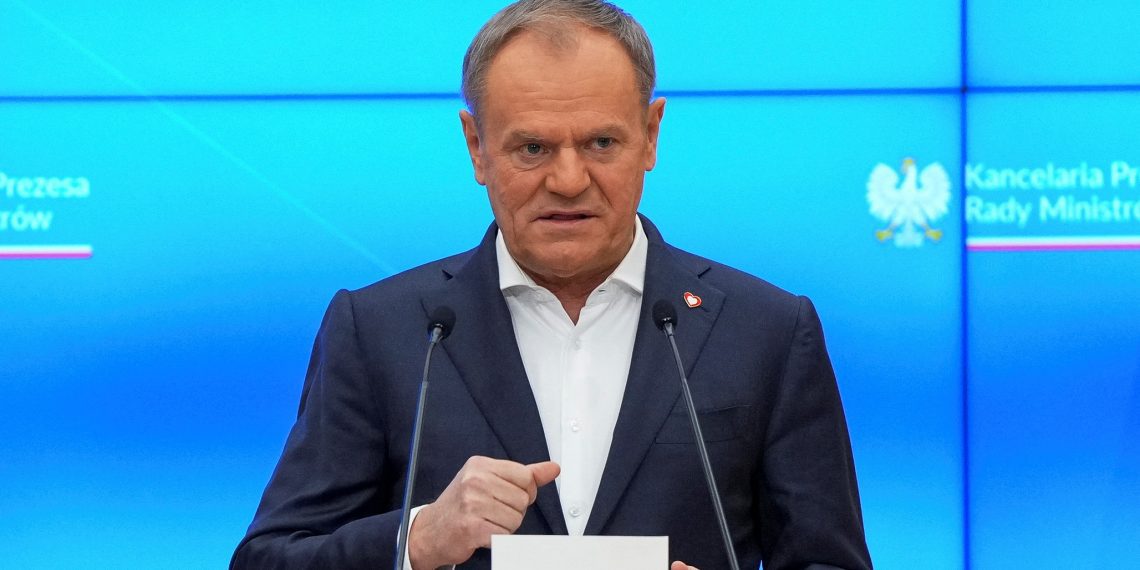Polish Prime Minister Donald Tusk has leveled explosive allegations against Russia, accusing the Kremlin of orchestrating a global campaign of air terror. Speaking alongside Ukrainian President Volodymyr Zelenskyy on Wednesday, Tusk claimed Russia had plans to target airlines worldwide, further escalating international concerns over Moscow’s hybrid warfare tactics.
Allegations of a Global Air Terror Campaign
Tusk’s statement comes amid reports from The New York Times that U.S. intelligence warned the White House of a Russian plot to smuggle incendiary devices onto cargo planes bound for the U.S. The White House reportedly issued a stern warning to the Kremlin, urging it to halt any such operations.
“I can only confirm that Russia planned acts of air terror, not just against Poland but against airlines across the globe,” Tusk stated, without providing further details.
The claim adds to growing concerns about Russia’s alleged use of unconventional tactics to destabilize its adversaries. Moscow has consistently denied such allegations, labeling them as baseless.
Hybrid Warfare and Escalating Accusations
Russia has faced repeated accusations of sabotaging European transport infrastructure and engaging in hybrid warfare tactics. Countries like Poland and the Czech Republic have reported instances of GPS jamming and cyberattacks targeting critical systems.
In April 2024, Czech Transport Minister Martin Kupka accused Russia of conducting “thousands of attempts” to disrupt European railways since the onset of its war against Ukraine. Kremlin spokesperson Dmitry Peskov dismissed these claims, calling them “unsubstantiated rhetoric.”
Most alarmingly, Russia was recently implicated in the downing of an Azerbaijani passenger jet over Kazakhstan, which killed 38 people. While President Vladimir Putin issued a rare apology, he stopped short of accepting responsibility, echoing Russia’s stance following the 2014 MH17 disaster that claimed 298 lives over eastern Ukraine. Investigators linked the MH17 incident to Russian-backed separatists, though Moscow has consistently denied involvement.
A Pattern of Destabilization?
If true, Tusk’s allegations signal a dramatic escalation in Russia’s hybrid warfare campaign. These tactics, blending traditional military operations with cyber, economic, and psychological warfare, have been central to the Kremlin’s strategy for destabilizing adversaries while avoiding full-scale conflict.
Experts note that targeting international aviation could severely disrupt global stability, damaging economies and amplifying fear among the public. The potential for such attacks raises urgent questions about global aviation security, intelligence sharing, and diplomatic countermeasures.
International Response and Implications
The international community is likely to react strongly to these allegations. If evidence corroborates Tusk’s claims, it could lead to further sanctions and diplomatic isolation for Moscow. The U.S., already at the forefront of countering Russian aggression, has warned the Kremlin against escalating its tactics.
The implications for global aviation security are equally concerning. Enhanced security measures, coupled with closer international cooperation, may become necessary to counteract potential threats.
Russia’s Denials and a Broader Narrative
While Russia has denied the accusations, its track record raises doubts. The MH17 disaster remains a symbol of Moscow’s alleged recklessness, and incidents like the Azerbaijani jet crash fuel perceptions of a nation willing to defy international norms.
Kremlin critics argue that these actions are part of President Putin’s strategy to project power and undermine adversaries, particularly in Europe and the U.S.
The Road Ahead
As these allegations gain traction, the focus will shift to gathering evidence and coordinating an international response. With tensions between Russia and the West already at a boiling point, Tusk’s statement adds fuel to an already volatile geopolitical situation.









